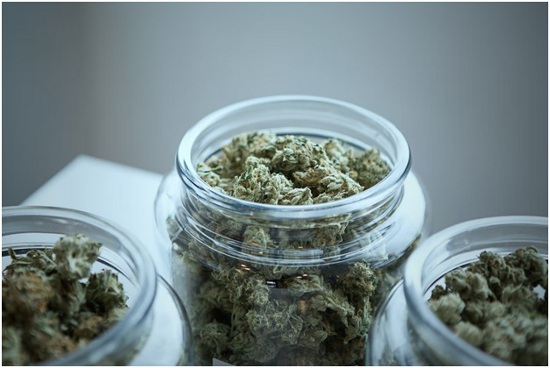Medical marijuana is a controversial topic, but there are many benefits that cannot be ignored. The use of medical marijuana has been shown to be effective in treating a variety of conditions, including pain, nausea, and wasting syndrome. It can also help to improve the quality of life for people suffering from serious illnesses. In some states, medical marijuana is even legal. Here, we will discuss some of the main benefits of medical marijuana that make this drug worth considering.


Pain relief
Pain relief is one of the most well-known potential benefits of medical marijuana. There are many different types of pain, and not all of them can be helped by traditional pain medications. Cannabis has been shown to be effective in treating various types of pain, including chronic pain, nerve pain, and muscle pain. In some cases, cannabis may even be more effective than traditional medications, such as opioids. This is particularly beneficial for those who suffer from chronic pain, such as those with conditions like arthritis or multiple sclerosis according to members and supporters of the Florida Cannabis organization. Cannabis has been shown to be effective in reducing inflammation and pain in a wide variety of studies, and it could provide relief for those who are struggling with chronic pain.
Nausea reduction
Nausea and vomiting are among the most common medical problems, affecting millions of people each year. Nausea can be caused by a variety of factors, including chemotherapy, pregnancy, motion sickness, and anxiety. For many people, nausea is just a minor annoyance. But for others, it can be a debilitating condition that significantly impacts their quality of life.
Medical marijuana has been shown to be an effective treatment for nausea and vomiting. In fact, it is one of the most well-known and researched medical applications of marijuana. A wide body of scientific evidence indicates that marijuana is an effective antiemetic (nausea-reducing) agent. A number of clinical trials have shown that marijuana can significantly reduce chemotherapy-induced nausea and vomiting.
In addition, marijuana has also been shown to be effective in reducing nausea and vomiting associated with pregnancy. A number of studies have shown that marijuana can safely and effectively reduce nausea and vomiting in pregnant women.
Marijuana is also an effective treatment for motion sickness. A number of studies have shown that marijuana can help relieve the symptoms of motion sickness, including nausea and vomiting.
Lastly, marijuana has also been shown to be an effective treatment for anxiety-related nausea. A number of studies have shown that CBD, a compound found in marijuana, can help reduce anxiety-related nausea.
Improved appetite
Appetite loss is a common side effect of many medical conditions and treatments. This can lead to weight loss, malnutrition, and reduced quality of life. Cannabis has been shown to stimulate appetite in people with cancer and other medical conditions. A 2011 study found that cannabis increased appetite in people with HIV/AIDS. A 2012 review also found that THC, one of the main active compounds in cannabis, may increase appetite. Cannabis may also help reduce nausea and vomiting, which are common side effects of chemotherapy and other medications.
Cannabis has been used to treat medical conditions for centuries. In recent years, more and more states have legalized marijuana for medical use. Marijuana contains a number of compounds that can relieve a variety of symptoms. These compounds include cannabidiol (CBD) and tetrahydrocannabinol (THC). CBD is thought to have anti-inflammatory, pain-relieving, and anxiety-reducing properties. THC is the compound that causes the “high” associated with marijuana use. It also has some medical benefits, including increased appetite.
Marijuana is typically smoked, but it can also be ingested in other ways. Edibles are cannabis-infused foods that can be eaten. Cannabis can also be consumed as an oil, tincture, or capsule. Topical products, such as creams and ointments, can be applied to the skin. Marijuana should only be used under the guidance of a healthcare provider. They can help determine the best method of consumption and the appropriate dosage.
Reduced inflammation
One of the main benefits of using medical marijuana is that it can help to reduce inflammation throughout the body. This is particularly beneficial for those who suffer from conditions like Crohn’s disease, arthritis, and multiple sclerosis, where inflammation can be a major source of pain. By reducing inflammation, medical marijuana can help to ease pain and improve the quality of life for patients.
Anxiety relief
Medical marijuana has been used to treat a variety of medical conditions for centuries. In recent years, it has gained more attention and acceptance as a treatment for anxiety. Anxiety is a common mental health disorder that can cause significant distress and interfere with daily life. While there are many effective treatments available, some people may not respond well to traditional treatments or may not be able to tolerate the side effects. For these people, medical marijuana may be an effective option.
Marijuana contains compounds called cannabinoids. These compounds can interact with receptors in the brain to produce a variety of effects, including relieving anxiety. Research on cannabinoids and anxiety is limited, but the available evidence suggests that they may be helpful in treating anxiety disorders
A small number of studies have examined the potential of THC, the main psychoactive compound in marijuana, for treating anxiety. One study found that people with social anxiety who took a THC-containing cannabis product before a public speaking test had significantly lower levels of anxiety and discomfort than those who took a placebo.
Depression relief
One of the main benefits of using medical marijuana is that it can help alleviate depression. Depression is a common mental disorder that can cause a range of symptoms, including feelings of sadness, loss of interest or pleasure, fatigue, changes in appetite, sleep problems, and difficulty concentrating. While there are many different treatments available for depression, some people find that medical marijuana is an effective option.
In one study, patients who used medical marijuana for their depression reported a decrease in symptoms. Other research has also found that medical marijuana can be helpful for treating other mental health conditions like anxiety and post-traumatic stress disorder (PTSD).


As with any medication, there are potential side effects associated with medical marijuana use. The most common side effect is sedation or sleepiness. Other potential side effects include impaired motor skills, short-term memory loss, bloodshot eyes, and increased heart rate. It is important to speak with a medical professional before beginning any medical marijuana treatment to ensure that it is the right decision for you.
















